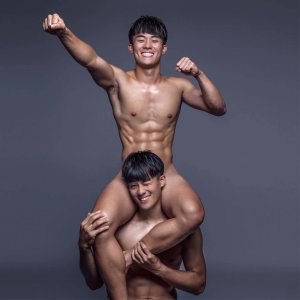Esta resenha pode conter spoilers
Realistic but discontinuous
I found it particularly difficult to connect with the series at first. The first two episodes were not at all interesting to me. I didn't like the "humor" scenes that weren't funny at all and I simply hated the protagonist's heterosexual friend. Asian series tend to portray women as if they were crazy and/or annoying and this was exactly what happened here. It was a relief when she got married and left. I almost felt physical pain when she came back to annoy the audience in another episode, but fortunately it was only a few scenes.
The series improves A LOT from episode 3 onwards and reaches its peak in episode 6. One of the problems with this show is that it changes drastically when it switches from one story arc to another (each one representing a relationship of the protagonist). This makes the story become irregular and discontinuous. All three relationships were well-constructed and the entire cast rocked, but when there was a boyfriend change, it felt like one series ended and another began. The fourth "relationship" seemed unnecessary to me. The last two episodes dragged on and were hard to watch, because I couldn't understand what the character was looking for in that relationship that obviously had no future. The series ends with a bitter aftertaste, which I wouldn't recommend to anyone who is sad or depressed. I remember that after episode 6, I thought: "I hope the series doesn't end with him alone and bitter, partying with his friends, who would be presented as the substitute loves for his failed romances." Unfortunately, that's exactly how it ended, a total anticlimax.
Despite having been born into an evangelical family and having had experiences with religious gays facing psychological conflicts (like boyfriend number 2), I admit, however, that I have some difficulty understanding the protagonist at times. I haven't read the book, which leaves my judgment impaired, but I can't understand why the protagonist doesn't fight for his relationship with Gyu Ho. The conversation between the two at the airport is quite difficult to digest. He simply gives up on the other, without there being anything that seems to justify it. He had already regretted having ignored the photographer's feelings in the first episodes, so why repeat the experience with someone he liked much more? In the last two episodes, the protagonist goes through an excruciating depressive journey thinking about a guy he could simply call and ask for forgiveness, but he chooses not to. Why choose to suffer?
Maybe I'm being a little harsh on the character, maybe I also "choose" to suffer at certain moments in life, but it's easier to judge others than yourself, isn't it?
Even though I didn't like episodes 1, 2, 7 and 8, I think the series is worth watching for its great realism, for the courageous way it portrays the harshness of LGBTQIA+ life in South Korea, tackling issues such as religious homophobia, internalized homophobia, prejudice against HIV-positive people, depression, suicide, the maturation and loneliness of gay men, etc. I praise the production and the cast for this series.
The series improves A LOT from episode 3 onwards and reaches its peak in episode 6. One of the problems with this show is that it changes drastically when it switches from one story arc to another (each one representing a relationship of the protagonist). This makes the story become irregular and discontinuous. All three relationships were well-constructed and the entire cast rocked, but when there was a boyfriend change, it felt like one series ended and another began. The fourth "relationship" seemed unnecessary to me. The last two episodes dragged on and were hard to watch, because I couldn't understand what the character was looking for in that relationship that obviously had no future. The series ends with a bitter aftertaste, which I wouldn't recommend to anyone who is sad or depressed. I remember that after episode 6, I thought: "I hope the series doesn't end with him alone and bitter, partying with his friends, who would be presented as the substitute loves for his failed romances." Unfortunately, that's exactly how it ended, a total anticlimax.
Despite having been born into an evangelical family and having had experiences with religious gays facing psychological conflicts (like boyfriend number 2), I admit, however, that I have some difficulty understanding the protagonist at times. I haven't read the book, which leaves my judgment impaired, but I can't understand why the protagonist doesn't fight for his relationship with Gyu Ho. The conversation between the two at the airport is quite difficult to digest. He simply gives up on the other, without there being anything that seems to justify it. He had already regretted having ignored the photographer's feelings in the first episodes, so why repeat the experience with someone he liked much more? In the last two episodes, the protagonist goes through an excruciating depressive journey thinking about a guy he could simply call and ask for forgiveness, but he chooses not to. Why choose to suffer?
Maybe I'm being a little harsh on the character, maybe I also "choose" to suffer at certain moments in life, but it's easier to judge others than yourself, isn't it?
Even though I didn't like episodes 1, 2, 7 and 8, I think the series is worth watching for its great realism, for the courageous way it portrays the harshness of LGBTQIA+ life in South Korea, tackling issues such as religious homophobia, internalized homophobia, prejudice against HIV-positive people, depression, suicide, the maturation and loneliness of gay men, etc. I praise the production and the cast for this series.
Esta resenha foi útil para você?
























